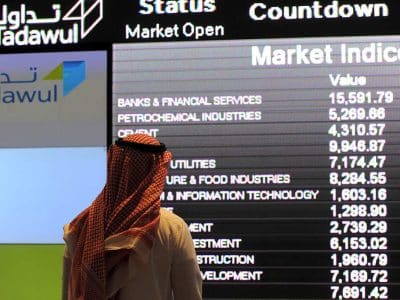Dubai’s index DFM ended higher for the fifth straight session, as property and bank stocks led on rising oil prices and a bullish report on the UAE property sector.Emaar Properties climbed 7.5 percent and Dubai Islamic Bank rose 3.5 percent. These gains helped the index climb 2.2 percent to 1,920 points. Late selling eroded much of the benchmark’s gains after it reached an intra-day high of 1,993 points. Shuaa Capital fell 8.3 percent.
“Dubai is catching up, but its economic outlook is still the most difficult in the region and so I don’t think its rally is sustainable,” says Shakeel Sarwar, Sico investment bank head of asset management.
“Dubai is a real estate play, whether its directly through property and construction companies or indirectly through banks. I don’t see a proper recovery until 2011.”
Kuwait’s index KWSE shrugged off early losses to climb 1.2 percent to 8,251 points, despite only two of its 10 largest stocks advancing as financial shares slump.
Mobile Telecommunications Co (Zain) was the main support, jumping 10 percent to take its gains to 39 percent over the past seven trading days.
Agility was the other heavyweight to advance, climbing two percent. It has gained 7.4 percent since announcing a $1.4bn deal with the US Army on Saturday.
National Bank of Kuwait dropped 3.1 percent, while Kuwait Finance House and Commercial Bank both fell by more than 1.5 percent.
Bahrain’s measure BAX rose 0.6 percent to 1,632 points. Al Salam Bank climbed 2.5 percent after Kuwait’s Global Investment House said it was planning to sell its stake in the Bahrain lender.
Banks lead Doha’s index QSI to a higher close after Qatar’s government sets up a QR15bn ($4.1bn) fund to buy banks’ property portfolios, but most stocks fell.
Qatar Islamic Bank climbed 6.1 percent and Qatar National Bank rose 2.8 percent. Industries Qatar added 1.5 percent after Qatar’s government approved QR1.16bn ($318.8m) in compensation for steel price caps.
These gains helped the benchmark rise 1.4 percent to 7,078 points, its third advance in four sessions. Losers outnumbered gainers 11 to seven as investors booked profits in other sectors following Sunday’s 5.9 percent surge.
“A correction will be healthy for Gulf markets and is overdue — they need to go through some consolidation before they can move higher in a sustainable way,” said Shakeel Sarwar, Sico investment bank head of asset management.
“But momentum is pretty strong, so a correction isn’t yet imminent.”
Oman’s index MSI ended lower for the second session in three as investors sold Omani blue chips to reinvest in resurgent Dubai shares.
The Muscat benchmark fell 0.1 percent to 5,495 points, with Oman Telecommunications (Omantel) dropping 0.5 percent and National Bank of Oman losing 1.8 percent.
“Local investors are selling up and looking more at the Dubai market, which has shot up over the past couple of days,” said Sunil Dhall, vice-president at Gulf Baader Capital Markets in Muscat.
Dubai’s index DFM climbed 3.9 percent to 1,951 points. (Reuters)







